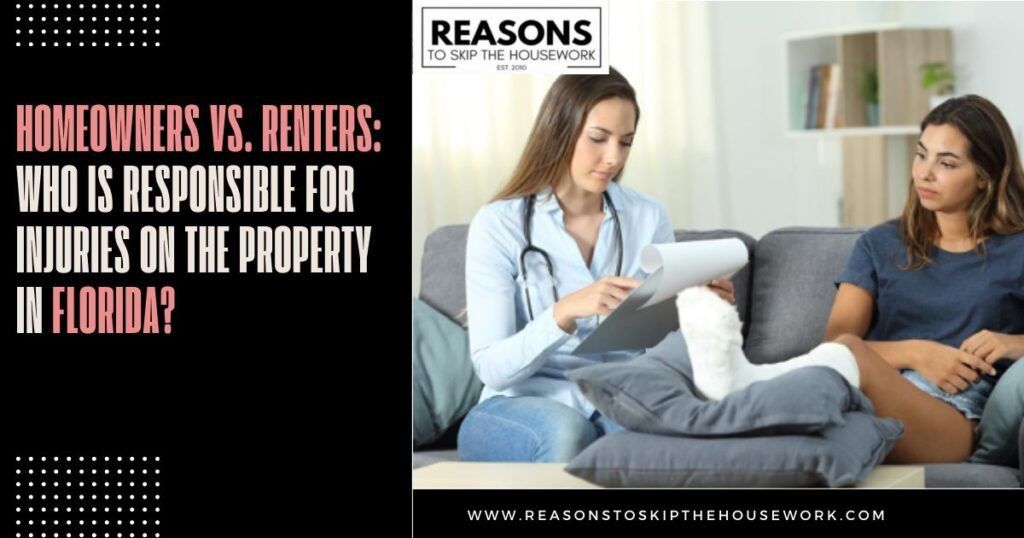In Florida, the question of responsibility for injuries on a property can often be a maze of legal considerations. The liability typically hinges on who maintains control over the property whether it is a homeowner or a tenant. This control plays a pivotal role in determining who is at fault under premises liability, which forms the backbone of such cases.

Liability can vary greatly depending on the visitor’s status. Invitees and licensees usually find that the property owner is accountable for their safety. In contrast, a trespasser’s legal protection might not be as strong, potentially reducing the owner’s obligations. This distinction examined closely in premises liability law, is essential for anyone handling such claims.
Florida premises liability laws demand a nuanced understanding of the duty of care expected from property owners. Given these legal principles, knowing the specific responsibilities in different situations becomes crucial. Understanding legal responsibilities can help homeowners and renters avoid potential legal pitfalls.
Contents
Understanding Premises Liability in Florida
Premises liability in Florida revolves around the property owner’s obligations related to safety and how liability is determined based on the classification of visitors. It examines the responsibilities of both homeowners and renters in maintaining secure environments.
Defining Duty of Care and Negligence
In Florida, the duty of care signifies the responsibility property owners have to ensure that their premises are reasonably safe for visitors. This obligation demands preventive actions to eliminate dangerous conditions and, if such hazards exist, adequate warnings must be provided. If an accident occurs due to a property owner’s failure to maintain safe conditions, this could indicate negligence.
This negligence involves several components, including the foreseeability of harm and whether adequate security measures were in place. Property owners typically hold liability insurance to cover personal injury claims arising from such incidents. Consulting with a premises liability attorney can help determine if negligence is present and guide victims through the legal process.
Types of Visitors: Invitees, Licensees, and Trespassers
Florida law classifies visitors into three categories: invitees, licensees, and trespassers, each with distinct legal statuses. Invitees are individuals on the property for business purposes, such as customers. These visitors require the highest duty of care from property owners, who must maintain safe conditions.
Licensees, like social guests, enter with permission for non-business purposes. Owners need to warn them of known hazardous conditions. Trespassers do not have permission to be on the property, so the duty is minimal, focused mainly on avoiding intentional harm. Knowing these distinctions is crucial for property owners to manage their responsibilities effectively and for individuals pursuing a personal injury claim.
Responsibility and Coverage for Homeowners and Renters
In Florida, determining who is responsible for injuries on a property involves considering the roles and obligations of homeowners, tenants, and their respective insurance policies. Understanding liability in different scenarios can help clarify potential legal and financial outcomes.
Evaluating Property Owner Liability and Tenant’s Injuries
Property owners must maintain their premises to prevent incidents like slip and fall accidents, dog bites, or swimming pool mishaps. If an injury occurs due to the owner’s negligence, they may be held liable. Homeowners become responsible when personal injury cases arise, especially if they fail in property upkeep. For tenants, situations can differ based on lease agreements and specific circumstances. If a tenant’s guest is injured due to the tenant’s negligence, the tenant may be liable. However, if the injury stems from a structural issue, the homeowner might bear responsibility. Legal nuances in these injury cases require clear documentation and understanding of maintenance duties.
Insurance Policies: Homeowners, Renters, and Commercial
Homeowners insurance provides critical financial protection, covering property damage and liability for injuries occurring on the premises. This type of insurance typically includes liability coverage for accidents like slip and fall incidents. Renters insurance offers similar personal liability coverage, safeguarding tenants against personal injury claims related to their actions or negligence. Commercial insurance, relevant for leased commercial properties, can also cover injury claims under specific conditions. These policies are instrumental in providing coverage for injury-related legal action. It’s essential for both property owners and tenants to have adequate insurance to address potential legal and financial responsibilities. Ensuring comprehensive liability coverage is a crucial step in managing risks related to property injuries.
